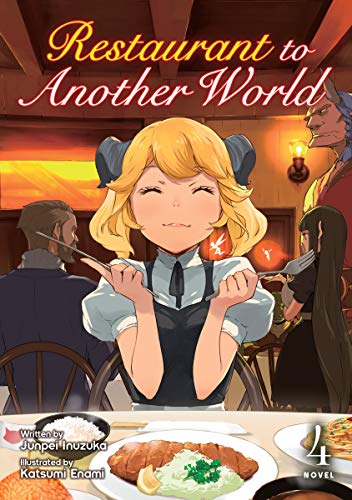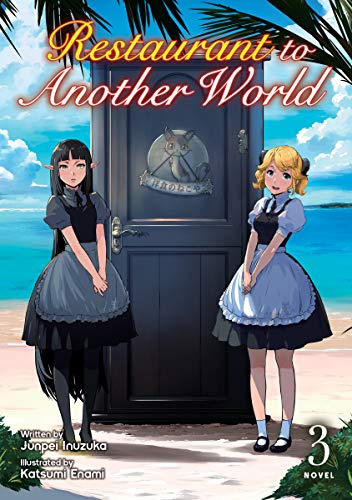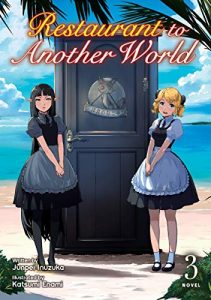By Junpei Inuzuka and Katsumi Enami. Released in Japan as “Isekai Shokudou” by Shufunotomosha. Released in North America by Seven Seas. Translated by Elliot Ryouga. Adapted by Nino Cipri.
Last time I said that the book jumped around several time periods, and that goes double for this book, which shows us a few of the ongoing characters and their development but is also happy to show us how the fantasy world is coming from a period where there were battles to the death between humans and demons, between Empires and Kingdoms, and between vampires and “liliputians”. Indeed, it’s not really clear how time connects the world to the restaurant – there’s one story here which feels like it reads as a vampire from way in the past ends up at the restaurant of the “present”. That said, I honestly think that I’d need to go back and read the pr3evious books if I wanted to keep track of it all. This is a series about fantasy characters eating food, and while it’s doing its best to provide plot and characterization to go along with that, anything else is secondary. Which, as I’ve said before, makes it hard to review.
The “big” development at the start of the book is that the owner puts a sign on the fantasy world-side of the door that translates the restaurant’s name and purpose for the denizens of that world. Until now, the clientele it had attracted – at least in regards to first-timers – always tended to be either people in dire straits or people who naturally say “oh hey, what’s this door in the middle of nowhere?”. Now that it can say what it is, it’s attracting more newcomers who might have been wary were it just a door with Japanese written on it. Of course, even if they’re aloof elves that literally live in the clouds, they still end up enchanted by the clouds. I also liked that the customers are interacting with each other in ways other than talking about the food – one bard with a broken leg who found the door in the middle of nowhere gets healed by a priestess, meaning the restaurant is literally a life-saver.
The “main” cast still don’t do much but serve food. I had wondered if the series might be going for some sort of romance between the owner and Aletta, but there’s absolutely no sign of that here – I think it’s got nothing else on its mind but food. Aletta is still working on recovering from the abuse she received in the fantasy world – when she comes down with a bad cold (and gets some egg porridge), she fears that she’ll end up being fired for being unable to work. Kuro has a more difficult problem – she’s hideously overpowered, doesn’t speak (she communicates with customers telepathically, and none of them notice this at all), and is at heart a stoic sort of character. She seems to care for Aletta and the owner, but it’s hard to get a grasp on her. I’m not sure we ever will.
All this and food, food, food. There’s roast beef, Chinese congee, mille crepe cake, etc. The series continues to be a peaceful meal of a book.



